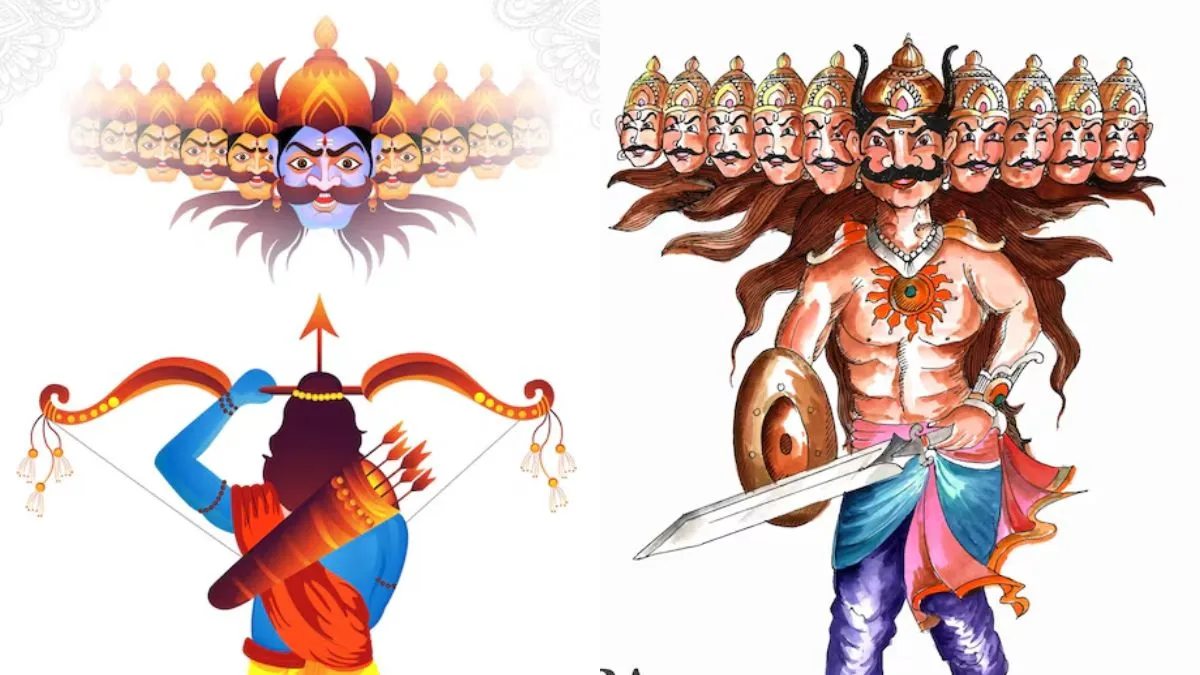- By Aditi Priya Singh
- Thu, 02 Oct 2025 02:22 PM (IST)
- Source:JND
When we hear the name Ravana, the first thought that comes to mind is the ten-headed demon king who abducted Sita and was defeated by Lord Rama in the Ramayana. However, the life of Ravana is much more than what most people know. He was not just a powerful ruler of Lanka but also a brilliant scholar, a great devotee of Lord Shiva, a skilled warrior, and a master of the Vedas and astrology. His ten heads are said to symbolise immense knowledge of the six Shastras and four Vedas.
Although Ravana is often portrayed as the antagonist in the Ramayana, he had qualities that made him unique and respected even by his enemies. From being a Veena player to composing hymns for Lord Shiva, his personality was filled with depth and contradictions. In this article, we will uncover 30+ unknown facts about Ravana that reveal his intelligence, devotion, power, and the reasons why he remains one of the most fascinating characters in Indian mythology.
Early Life and Family Of Ravan
1. Ravana was the son of sage Vishrava and Kaikasi.
2. His grandfather was Pulastya, one of Lord Brahma’s ten mind-born sons.
3. Ravana was born into a family of both sages (from his father’s side) and demons (from his mother’s side).
4. His real name was Dashanan (one with ten heads).
5. Ravana had two brothers – Kumbhakarna and Vibhishana – and one sister, Shurpanakha.
ALSO READ: 30+ FAQs You Must Know About Dussehra: Why We Celebrate It- History, Significance And More
Ravana's Knowledge and Scholarship
6. Ravana was a Brahmin by birth and a great scholar of the Vedas.
7. He was a master of astrology and Ayurvedic medicine.
8. Ravana was well-versed in 64 types of knowledge and arts.
9. His ten heads symbolised mastery over six Shastras and four Vedas.
10. Ravana was the author of Ravana Samhita, a book on astrology.
Devotion and Spirituality About Ravan
11. Ravana was an ardent devotee of Lord Shiva.
12. He is said to have composed the Shiva Tandava Stotram.
13. He once tried to lift Mount Kailash to impress Shiva.
14. Ravana offered his own head to Lord Shiva in devotion.
15. He had the boon of invincibility from Lord Brahma.
Kingdom and Rule Of Ravana
16. Ravana ruled the golden city of Lanka, said to be built by Vishwakarma.
17. Lanka was once ruled by Ravana’s brother Kubera, the god of wealth.
18. Ravana was a skilled administrator and warrior.
19. His kingdom was described as prosperous and full of riches.
20. Ravana was respected for his justice system, despite his arrogance.
Personal Life Of Ravana
21. Ravana’s chief queen was Mandodari, known for her wisdom and patience.
22. He had several other wives and many sons, including Indrajit (Meghnad).
23. Ravana was a master musician and played the Veena.
24. He was considered a great poet and wrote hymns.
25. Despite being a demon king, he was a vegetarian Brahmin by birth.
Ravana in Ramayana
26. Ravana abducted Sita, leading to the Ramayana war.
27. He received a curse from Nalakubera that he could not misbehave with any woman against her will.
28. He was warned by his brother Vibhishana to return Sita, but refused.
29. Ravana was finally killed by Lord Rama with Brahmastra.
30. Rama asked Lakshmana to learn life lessons from the dying Ravana.
ALSO READ: Ravan Dahan Shubh Muhurat Dussehra 2025: Check Timings, Significance And Shri Ram Puja Vidhi
Legacy & Cultural Beliefs About Rvan
31. In Bisrakh Village, located in Greater Noida, Uttar Pradesh, India, Ravana is worshipped as it is believed to be his birthplace.
32. In Sri Lanka, some temples are dedicated to him.
33. Ravana is considered a symbol of immense knowledge and power, despite his downfall.
34. His character teaches the danger of ego and arrogance.
35. Even after his death, Ravana remains one of the most debated figures in Indian mythology.
